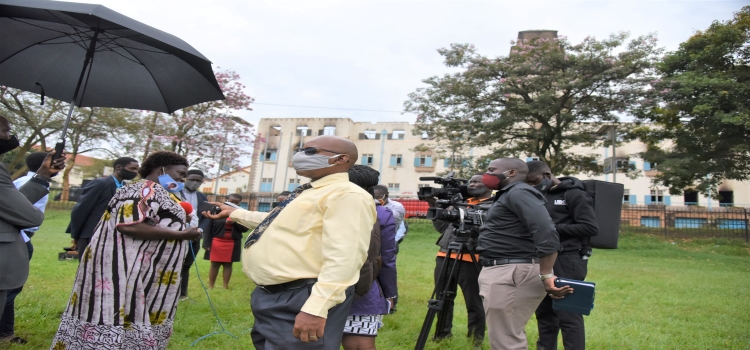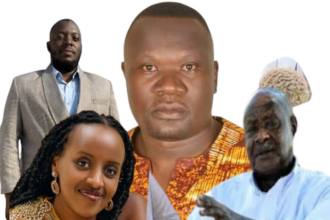Nearly two years since Gen Omar El Bashir was removed from power through a popular uprising, Sudan is tottering on the edge of collapse. The government increased public sector wages by 400%, thereby throwing the country into hyperinflation. Then its currency plummeted against the dollar making the domestic cost of imported goods unaffordable by most of its citizens. For a country with limited manufacturing and therefore import-dependent, the rapid depreciation of the local currency cut deep. As if the spirits of the ancestors are angry at what is happening, Sudan has the worst flooding in a century, affecting nearly 70% of the population.
For many Sudanese, the era of Bashir is beginning to look like a golden age. Now behind bars, the former president must be smiling at his successors whose promises have turned into pipe dreams. The new government made up of “democrats” in alliance with the military that helped them overthrow Bashir is latching from crisis to crisis as if driven by fate like in Ancient Greek tragedies. Many Sudanese thought the problem of their country was Bashir. He is now gone but the problems of Sudan have gotten worse. The lesson from this experience is simple but fundamental: transitions can be messy and lock a country into a vicious cycle of crisis.
For many African intellectuals and “intellectuals”, the problem must be the legacy of Bashir, especially the long spell he spent in power. Therefore even out of government, they would rather attribute the problems of the country to him, as if the current leadership lacks agency. In Uganda, where President Yoweri Museveni has ruled for 35 years, the advocates of change are sensitive and defensive. To them, pointing out the failures of Sudan’s new leaders is a disguised way to justify Museveni’s long and corrupt rule.
African elites love to invent spurious reasons for the continent’s failures. Because some countries have had long serving leaders, and failed spectacularly, a cross section of elites argue that longevity in power is “the” problem. Yet even if this claim were true, it only shows that such longevity is a byproduct of deeper structural problems, not a cause. In any case there are countries in Africa that have not had long serving leaders but they have not faired any better.
Ghana in the 23 years from independence in 1957 to 1981 when Jerry Rawlings came to power (for a second time) had nine presidents, an average of 2.55 years per president. In 1981 it was a basket case. It is Rawlings’ long rule that stabilized the country and ushered in its current corrupt and chaotic democracy. Since independence in 1960, Nigeria has had 15 presidents. That is an average of four years per president and remains one of the most mismanaged countries in Africa. Sierra Leone and Liberia have also never had long serving presidents but have had the worst transitions in Africa, accompanied by economic and state collapse.
Nearer home, by the time Museveni came to power in 1986, the average time a president had ruled Uganda was 2.6 years yet he inherited a collapsed state and economy. Short-lived rule by his predecessors had not immunized Uganda against this disaster; it was, on the contrary, the cause of state fragility. Museveni has stabilized the political dispensation by taming the army and using extensive corruption and patronage combined with a doze of repression to craft a minimum consensus among Ugandan elites.
Uganda is holding together largely through Museveni’s personal skills and accumulated loyalties. But the longer he has stayed in power, the more authority has come to be based on personal relationships. Museveni exercises this authority through his immediate family, then close kin, friends etc. These too replicate it downwards, using personal ties. The danger of such a system is that the entire structure of authority can break down quickly when the power of the people in charge is threatened and/or undermined leading to state collapse like happened in Libya, Iraq, Zaire, Somalia, etc.
This is the very reason those seeking change in Uganda need to be very careful. The solution is not just “Museveni agende.” That is too simplistic. Yet this simplification is understandable. British economist John Keynes argued that many issues are complex. Ordinary people handle complexity through narratives i.e. readily digestible theories-in-miniature. Narratives can spread easily and become public goods; and also, as the case of Uganda (and Africa generally) shows, they can also stray quite a long way from reality.
The claim that Uganda’s problem is an individual called Museveni is one such false narrative. It has occupied the best of our minds in spite of so many changes of presidents previously without any qualitative change in the quality of governance. This is why the discussion of a transition is one of the most critical issues facing Uganda. How do we secure a qualitative transition from Museveni? For many Ugandan elites, supported by their cheerleaders in liberal circles in the Western world, the quality of change doesn’t matter. What is needed is change, period.
Some people believe that the collapse of tyranny automatically leads to the triumph of democracy. This conviction is based on faith than historical experience. All too often, the collapse of one tyranny has led to renewed tyranny (witness Ethiopia, Eritrea, Egypt, etc.) or to chaos (as Uganda in 1979, Somalia, Liberia, Sierra Leone, Iraq, Libya etc.). This is why transitions need to be thought about carefully, recognizing that there is never a quick fix. This is also the reason the “Museveni-agende” agenda of Defiance and People Power is mindless and even dangerous. When I make this argument, some accuse me of using subtle ways to justify Museveni’s longevity. I am all too happy to suffer this reputational damage if only to keep this argument alive.
Sections of the opposition that constitute an outrage machine have constructed a fetish around “credibility” – particularly a sort of credibility purchased by taking radical “Museveni-agende” positions on national media. To the adherents of this view, anyone who does not tow this line has been compromised or “bought” by Museveni. This way, the radical extremists in both Defiance and People Power have successfully stifled the debate on the quality of change Uganda needs. This strategy is understandable because they know the quality of change they offer is worse.
Do you have a story in your community or an opinion to share with us: Email us at Submit an Article









